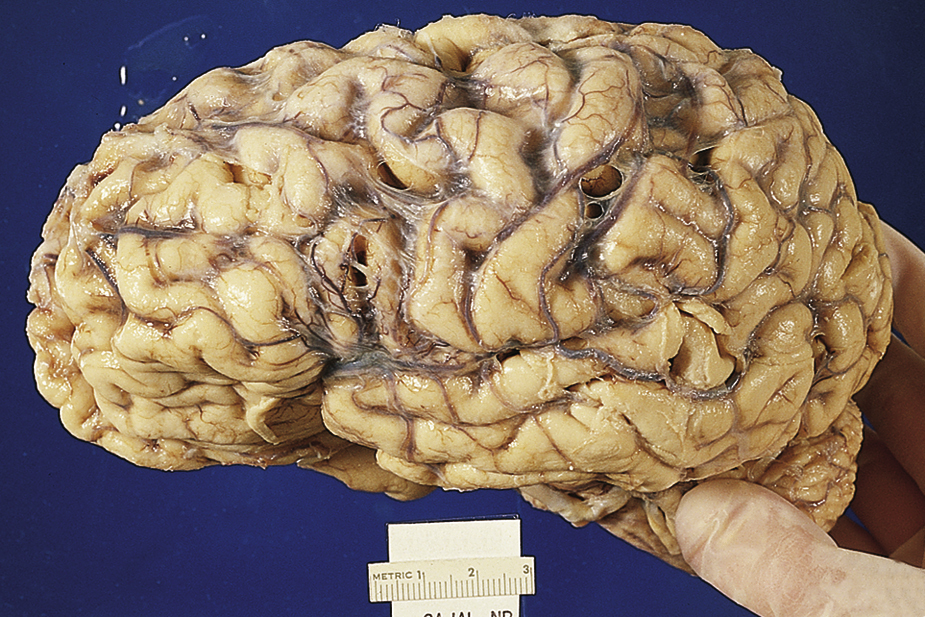Alzheimer’s disease (AD) /ôl″zīmərz/ [Alois Alzheimer, German neurologist, 1864–1915] , a condition characterized by progressive mental deterioration, often with confusion, memory failure, disorientation, restlessness, agnosia, speech disturbances, inability to carry out purposeful movement, and hallucinosis. There are three phases of disease progression over time: (1) preclinical Alzheimer’s characterized by changes that indicate the very earliest signs of disease; (2) mild cognitive impairment (MCI) or mild changes in memory and thinking abilities, enough to be noticed and measured, but not impairment that compromises everyday activities; (3) dementia due to Alzheimer’s. The patient may become hypomanic, refuse food, and lose sphincter control without focal impairment. The disease sometimes begins in middle life with slight defects in behavior and memory, usually an inability to incorporate new knowledge with old knowledge, but the symptoms can worsen dramatically with age. When the symptoms are severe, patients are unable to perform activities of daily living or orient to surroundings and do not recognize loved ones. Typical pathological features are miliary amyloid plaques in the cortex and fibrillary degeneration (tangles) in layers containing pyramidal ganglion cells. The cerebral cortex atrophies with widening of the cerebral sulci, especially in the frontal and temporal regions. Diagnostic criteria consist of a failure in at least three cognitive functions, including memory, use of language, visuospatial skills, personality, and calculating skills. Measurement of biomarkers in blood and cerebrospinal fluid, as well as neuroimaging tests to characterize brain changes, are assessments recommended by the Alzheimer’s Association. Treatment may involve medications that are thought to decrease the rate of decline. Also called senile dementia–Alzheimer type. ▪ PATIENT CARE CONSIDERATIONS: Care is initially concerned primarily with promoting activity and sleep and preventing agitation, violence, and injury. Death usually occurs 8 to 12 years after the first symptoms appear. Late-stage care is focused on palliative measures.

